
Issue Contents

Photo Essay:
Haarlem, City of Flowers
Haarlem is known to the Dutch as the Bloemenstad, the City of Flowers. Herewith some examples.
Click on an image to open a high-resolution version in a new tab.
Ctrl+w will close the new tab and return you to Carfree Times.
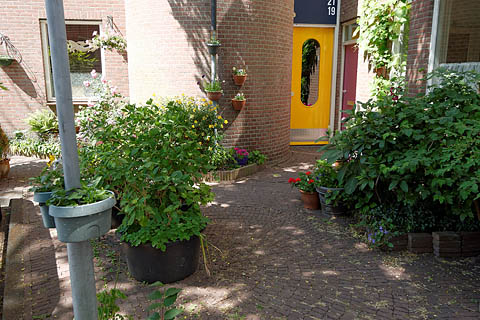

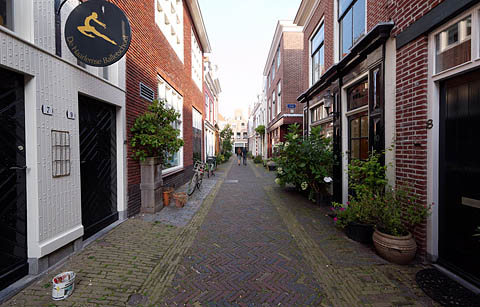

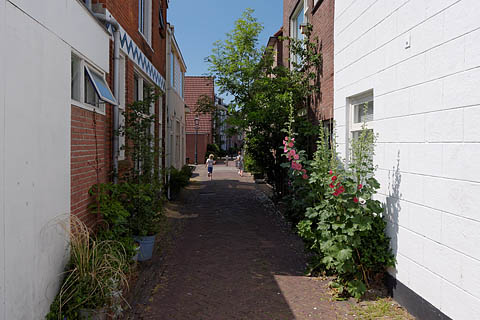

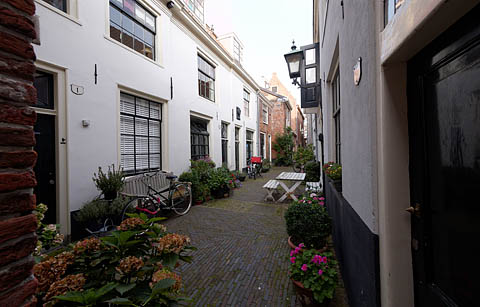

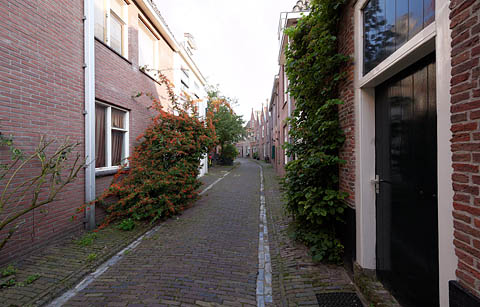

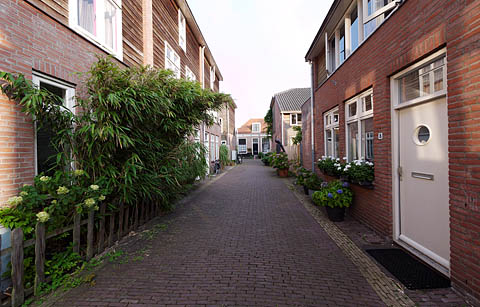

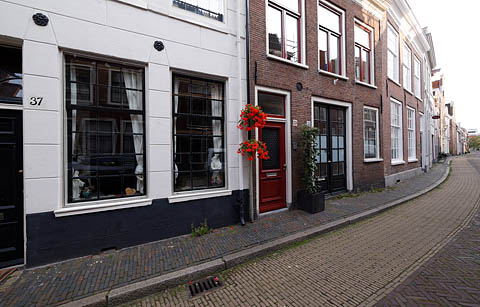

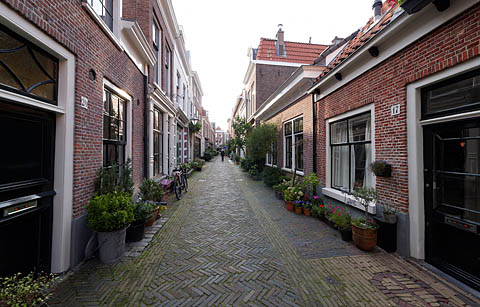

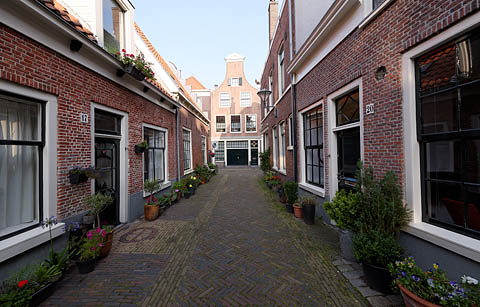

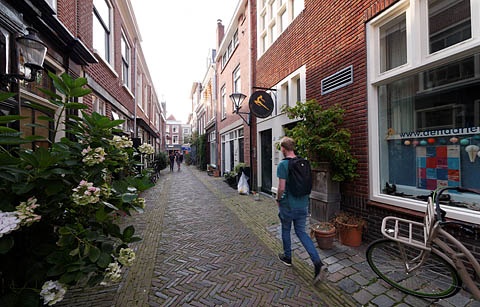

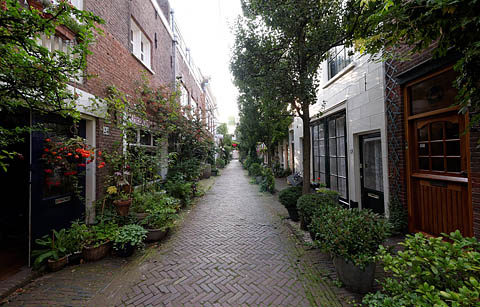

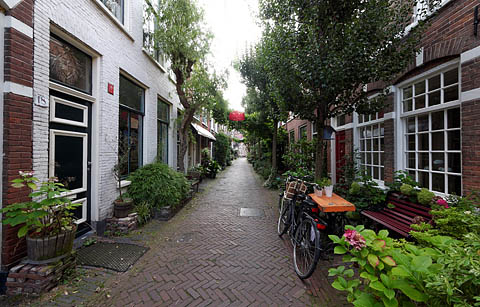

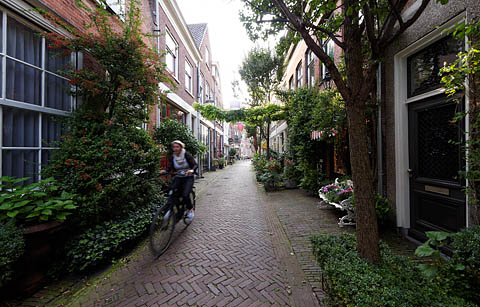

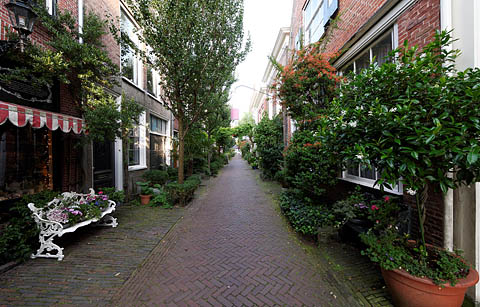

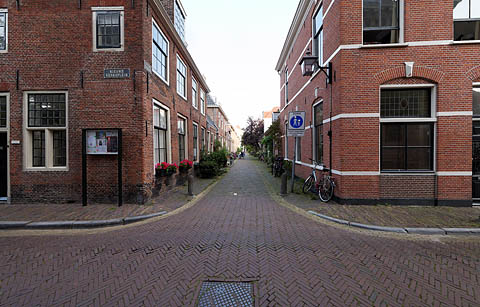

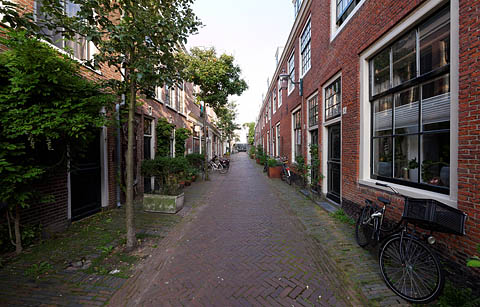

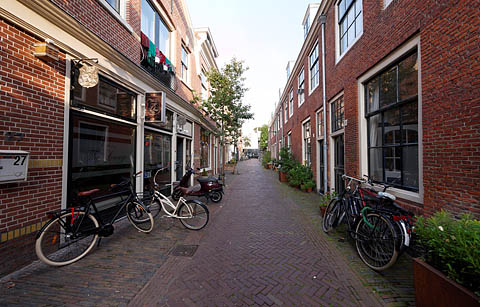

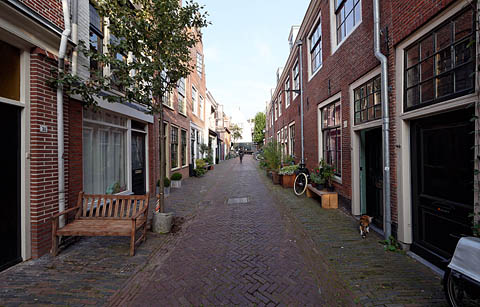


|

|

Announcements
What's Next for Carfree Times?
It takes me about six weeks a year to publish Carfree Times, and I am wondering if this is time well spent. There are now about 750 subscribers to Carfree Times, but there were once more than 1000. Despite this decline, I remain convinced of the benefits of a carfree future, and, in fact, all of the forces continue to align to make this approach to sustainability the one that offers the best chance to improve the quality of urban life. Major progress is ongoing and is even accelerating in most parts of the world.
When the first issue appeared 20 years ago, Carfree Times was a pioneering newsletter. At that time, "carfree" was not a generally recognized concept. Neither were climate change or looming fossil fuel exhaustion. The health effects of cars were not then so well known.
Today, most people understand what "carfree" means, and many have had at least brief experience with the quality of life it offers. Likewise, nearly everyone is aware of the energy and environment concerns related to motor vehicles.
I'm inclined to cut back on the energy, pollution, and climate change coverage, as these topics are now widely covered by mainstream media. The social impact of cars is still not well understood, and, as a sociologist and social worker, I have always considered this to be the most important reason to adopt a carfree urban future. Technical solutions won't solve the social problems cars cause; the only solution is to move them out of cities.
I would like to receive a very short email from readers. Please tell me whether or not Carfree Times is still useful to you and what you like and don't like. Thanks in advance for your feedback.
The Books
It's time for a quick summary of the situation with the books I published in 2000 and 2009. Carfree Cities is now held by about 350 libraries worldwide. The figure for Carfree Design Manual is a bit over 100.
Both books are widely available from booksellers in Europe and North America. In recent years, some excellent deals have become available (sometimes with new books being cheaper than used copies). The hardcover edition of Carfree Cities sold out years ago.
Video
I have just bought a Panasonic GH5 DSLR and will resume shooting video in the EU very soon. In the mean time, the existing 30 videos continue to draw views. You can find them all on YouTube
You can also use the Carfree channel at Vimeo, which may be preferable for some users as the quality is somewhat better. However, YouTube may load faster for some users.
If you watch a video, please Like it by clicking the Thumbs Up icon below the video (YouTube) or the Heart icon in the top-right of the video frame (Vimeo). Posting to Twitter and Facebook will also help if you can. We need to get the message out to a broader audience.
Quote of the Quarter
"Anyone who doesn't recognize the vastly improved quality of life in car free spaces has a screw loose."

News Bits
The links below will open in a new browser window or tab, depending on your browser; (Ctrl+click) may behave differently:

Urban Planning and Design
"Revisiting Donald Appleyard's Livable Streets [video 5:59]"
Donald Appleyard's 1979 book removed any excuse for planners not to know how damaging car traffic is to the social fabric of neighborhoods. Not only was the research seminal and detailed, it was presented in a largely graphical format that could be rapidly grasped. The research has since been replicated by others. Now the book is being republished after more than 30 years. If you don't know this book, get it! (Vimeo.com)
"The Need for Granularity in Urban Design"
This is not exactly synonymous with "small scale," but the two concepts are closely related. I strongly favor fine grain, and adding in local shops and services completes the job. (MarketUrbanismReport.com)
"A Better Development Pattern for NZ"
From our friends at Market Towns NZ. "Sometimes the best ideas are not new but timeless; they come around again when technology changes." Why, it's carfree! Imagine that! (MarketTowns.nz)
"Inner-city living makes for healthier, happier people, study finds"
"Contrary to popular belief, busy city centres beat suburban living when it comes to human wellbeing, as socialising and walking make for happier, healthier people, according to a new report." (TheGuardian.com)
I only ever lived for a few years in the suburbs, and hated it. When I was in grade school, living in the country wasn't bad, but I've been a city boy since I was a teenager. No going back, thank you.
"One of the Greatest Threats to Our Lifespans Is Loneliness"
Loneliness is closely associated with depression. We're a social species, and we don't thrive when deprived of social connections. I continue to maintain that the most important single reason to adopt carfree cities is to restore the social function of city streets. (CityLab.com)
"How a city in Spain got rid of its cars"
"According to the city administration’s numbers, motor traffic in Pontevedra’s historical centre has been reduced by an unbelievable 97% since 1999. Traffic is down 77% in the areas adjacent to the centre, and by 53% in the city as a whole."
I was there in 2011 and made a film, "Pontevedra: Just One Car," about the ravages of the few cars then still in the city. It's otherwise a gorgeous place. (CitiScope.org)
"Swiss people may be ready to live car-free under certain conditions"
The full study was not yet released when the article was written, but it seems that Swiss folks might give up driving if the circumstances are right. (Phys.org)

Transport, Pollution, etc.
"Dirty air is killing our children. Why does the government let this happen?"
"What an extraordinary dereliction of duty that our politicians leave headteachers [school principals] to fix a public health crisis". Monbiot at his outraged best.
"The government could solve much of this problem at a stroke by introducing a duty on councils to impose the kind of parking ban around schools at arrival and departure times that is in place in parts of Edinburgh and Solihull." Here in Haarlem, the school down the street is about to open, and the kids and their parents are streaming by on bikes. No cloud here, even if Continental air is not the cleanest. (TheGuardian.com)
"The Ride-Hailing Effect: More Cars, More Trips, More Miles"
Another technological panacea bites the dust. Oh, and Uber just gave away all your data and didn't bother to mention it for a year. (CityLag.com)
"The Anti-Urbanism of UberAir"
This idea is so ghastly it's difficult to conceive. (CityLab.com)
"Want a free ride? French cities opt for free public transport"
Apparently, 15 smaller French cities have adopted fareless public transport. In general I'm a strong supporter of this tactic, although there can be pitfalls. (France24.com)
"Enough With the Streetcars Already"
The anti-transit lobby in the USA must be gloating. Yeah, it's true that ill-conceived projects don't do well. Who ever thought a 3-mile long stretch of tramway would be any real use? New projects are insanely expensive due in large measure to the failure to adopt tram designs that don't require continuous overhead power supplies. (CityLab.com)
"Trams in Vienna, Austria, 2016" [YouTube video, 13:23]
This is a nice, unpretentious video about the wide application of trams in Vienna. By all accounts, trams have been working well there for a century. It's an almost ideal transit solution for medium-sized cities. Done right, it doesn't cost a fortune, and it provides fine-grained, comfortable transit service. This video will give you a feel for how it looks and works.
"Breathing Dirty Air May Increase Kidney Disease Risk"
Kidneys??? What's next? (MedPageToday.com)
"Vervuiling wereldwijd: 9 miljoen extra doden" [Global pollution: 9 million extra deaths]
Even I was shocked by the number. It's been known for years that air pollution from cars kills more people than crashes, but the magnitude of the problem is simply enormous. The article goes on to say that the effects of air pollution are not even fully understood at this point, which probably means that the actual number of deaths is even higher than we think. (NRC.nl)
"The European cities leading the way in car-free living in a bid to tackle toxic air pollution"
I'm a little distressed to see cities in Europe turning to carfree solutions for all the wrong reasons. Yes, it does help a lot with bad air pollution. (Some days you can find Dutch highways by looking for the red traces on pollution maps.) (Evening Standard, UK)
Doesn't anybody really understand that it's our entire civilization that's at stake here? If electric cars solve the pollution problem, and they might, we'll be right back to square one, and cars will once again be everywhere. It won't matter much that they're cleaner.
"In Drive to Cut Emissions, Germany Confronts Its Car Culture"
"Germans are beginning to question the sustainability of their automobile culture." About time. Anyone want some slightly soot-stained shares in Volkswagen? Nope. (Yale.edu)
"Right of way"
"Just fifteen years ago, Kathmandu was a walkable city. Today, it has passed the point of no return. Walking in Kathmandu is no longer pleasant; it is now restricted to back alleys that are too narrow for cars and bikes [i.e., motorcycles] to pass through comfortably. Pavements have narrowed into barely one person-wide strips, thanks to Baburam Bhattarai’s much-vaunted road expansion. And the dust on the streets, the open potholes, the [un]even paths, the militant motorbikes and microbuses, all make for a distinctly unpleasant experience." (Kathmandu Post)
A couple of decades ago, Kathmandu was an enchanted place. Today, I refuse to go there.
"America’s cities see significant decline in car commuting"
"The Brookings Institution reports that according to the most recent 2016 American Community Survey data from the U.S. Census Bureau, there was a 'significant' decrease in driving in 21 of the 50 most populous cities in the U.S. over the last decade." (TheLadders.com)

Climate Change
"Portuguese children to crowdfund European climate change case"
As always, the future belongs to the kids. That's why I'm surprised that today's kids don't seem to care that we're stealing theirs. This should be 1968 all over again, and I don't understand why it's not. (TheGuardian.com)
"The three-degree world: the cities that will be drowned by global warming"
You're probably safe in Albuquerque, which is about a mile above sea level. Otherwise, watch out. (TheGuardian.com)
"New Study Shows Urgently Needed 100% Renewable Transition More Feasible Than Ever"
"A transition to 100 percent renewable energy by 2050 - or even sooner - is not only possible, but would also cost less and create millions of new jobs, according to new research...." (Common Dreams.org)
"'Biggest Pile of Money on the Planet' To Dump Fossil Fuels Holdings"
"Norges Bank, which oversees the world's largest sovereign wealth fund, advised the Norwegian government to dump all of its shares in oil and gas companies, leaving those entities out of its $1 trillion fund." Anyone want some slightly used shares in Shell? Naw, didn't think so. (CommonDreams.org)
"Michael Bloomberg’s 'war on coal' goes global with $50m fund"
Until recently I would have cheered this on, but it now appears that leakage from the natural gas facilities that would provide the fuel to replace coal are so leaky (something like 100 times worse than expected), and natural gas is such a potent greenhouse gas, that I'm no longer certain that it's actually an improvement on coal. Renewables are the answer, and, as An Inconvenient Sequel: Truth to Power makes clear, the cost of renewable energy has fallen so fast that scarcely any other approach makes even economic sense these days. (TheGuardian.com)
"Natural gas and climate change" [PDF!]
This appears to be a serious analysis of the subject. It's 58 pages long. (Friends of the Earth Europe)
"Solar-to-fuel system recycles CO2 to make ethanol and ethylene"
"Scientists have harnessed the power of photosynthesis to convert carbon dioxide into fuels and alcohols at efficiencies far greater than plants. The achievement marks a significant advance in the effort to move toward sustainable sources of fuel."
This is still in the lab, but if it scales up, it's a very big deal.
(ScienceDaily.com)

About Carfree Times
Next Issue
The next issue of Carfree Times is scheduled for March/April 2018.
Subscribe to Carfree Times
Carfree Times is published quarterly at Carfree.com.
To receive e-mail notices of new issues, please visit the subscription page or
send e-mail with the word "Subscribe" in the subject line. We do not share our mailing list, except for whatever the spooks may be siphoning off.
Statement of Ownership
In this day of corporate-influenced media, Carfree.com declares its ownership and sources of support at the end of each year.
Carfree.com is wholly owned by Joel Crawford, the legal name of author J.H. Crawford. Its operation is financed by J.H. Crawford. It generates no revenues directly but does help support book sales. Carfree.com accepts review copies of books but makes no commitment to review them. J.H. Crawford receives no commissions from the sale of books mentioned on Carfree.com.
The views expressed at Carfree.com are those of J.H. Crawford, except for articles, letters, editorials, photographs, and films that carry the names of other authors. The inclusion of these signed texts is at the sole discretion of J.H. Crawford, who does not necessarily agree with the views expressed. All other content, except quoted material, is written by J.H. Crawford.
E-mail announcements of new issues of Carfree Times are mailed to approximately 750 subscribers. A rough estimate of first-year circulation for each new issue is 5000. All the issues ever published are still being read. Carfree.com as a whole -will have served approximately 1.5 million pages and 100 GB of files in 2017.

Back to Carfree.com
Carfree Times Home
Back to Carfree Times Issue 87
Forward to Carfree Times Issue 89
E-mail
carfree.com
Text and illustrations, except for guest content, placed in the public domain

|